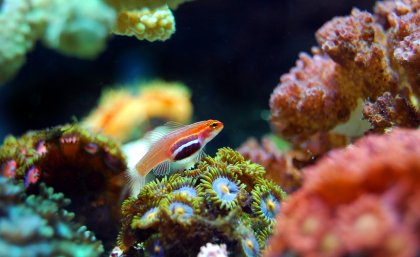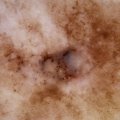
The most up-to-date global satellite images of the world’s coral reefs are now online, thanks to a collaboration between Microsoft’s late co-founder, Paul G. Allen, and a team of international partners including The University of Queensland.
The satellite images will be transformed into maps in the Allen Coral Atlas, an online mapping and monitoring project – to be completed in 2020 – that will show the composition and structure of the world’s coral reefs.
Dr Chris Roelfsema and Professor Stuart Phinn, from UQ’s School of Earth and Environmental Sciences and the Remote Sensing Research Centre, lead the mapping efforts globally, and have completed example maps for five important reefs at different locations around the world.
“The Atlas will be critical to saving coral reefs globally,” Professor Phinn said.
“We can now help strengthen conservation efforts, providing access to high-resolution satellite imagery and advanced analytics, mapping and monitoring the world’s coral reefs in unprecedented detail.”
Dr Roelfsema said UQ had been playing a critical role in what has been a truly international project.
“This project started by capturing a global, four-metre-per-pixel mosaic image of the world’s coral reefs, comprised of satellite imagery from 2017 to 2018,” he said.
“This was provided by a new generation of cube satellites operated by Planet, an integrated aerospace and data analytics company and satellite image provider.
“The satellite data was then cleaned up, with the Carnegie Institution - Asner Lab using advanced methods to correct distortions, estimate depth and sharpen images.
“Our group at UQ then used the data – and methods we have developed over the past 20 years – to map microalgae, coral reef, algae, land, rock, sand and rubble.”
“It’s a game-changer for conservation and UQ, and will help protect our reefs well into the future.”
Research information and the detailed global coral reef satellite image mosaic can be viewed at the Allen Coral Atlas website, which will expand to include maps which cover all reefs globally by the end of 2020.
The collaboration involved UQ’s Remote Sensing Research Centre, Paul G. Allen Philanthropies, Planet, the Carnegie Institution for Science and the Hawai’i Institute of Marine Biology.
Allen Coral Atlas assets are freely licensed for non-commercial scientific and conservation uses.
Media: Professor Stuart Phinn, s.phinn@uq.edu.au, +61 401 012 996; Dr Chris Roelfsema, c.roelfsema@uq.edu.au, +61 400 207 401; Dominic Jarvis, dominic.jarvis@uq.edu.au, +61 413 334 924.
.jpg)











